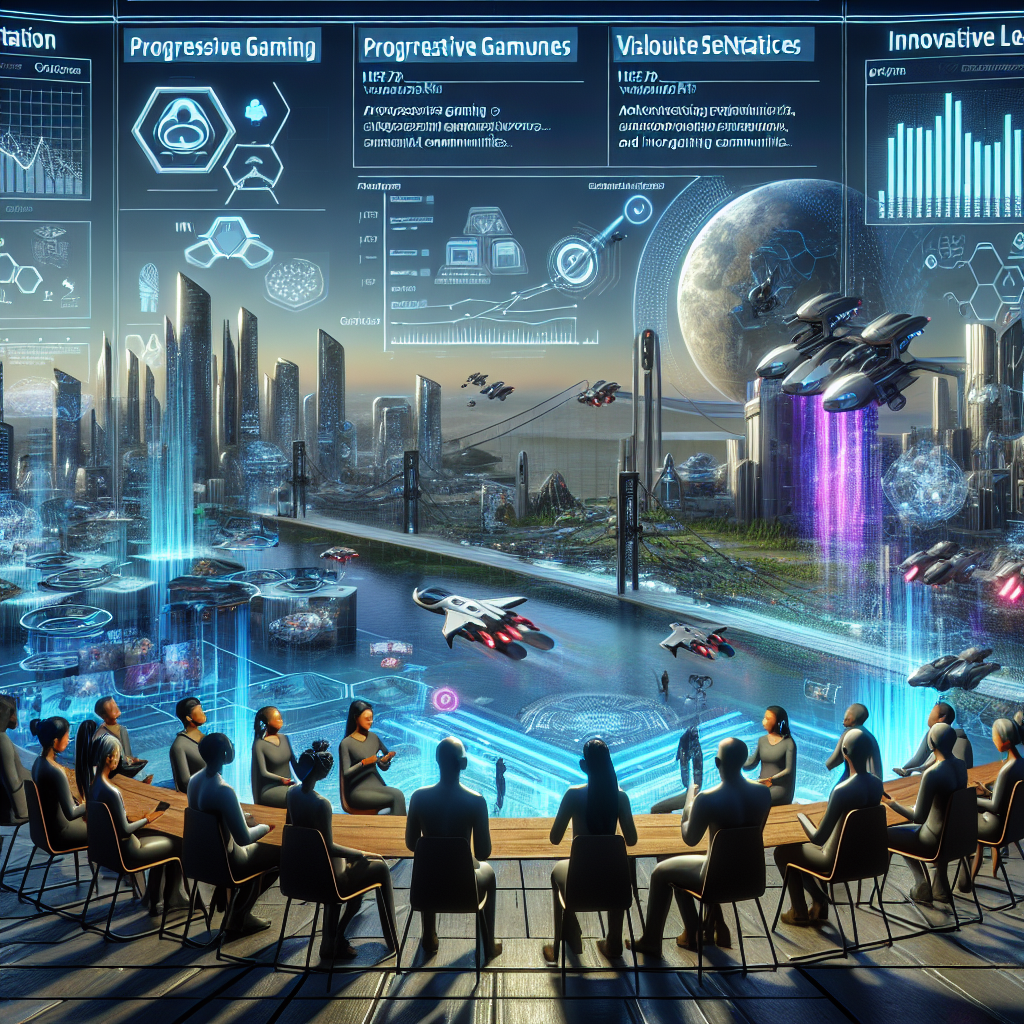The Future of Gaming Communities: Trends and Innovations to Watch in 2025
As we stand at the threshold of 2025, the landscape of gaming communities is poised for groundbreaking transformation. Driven by advancements in technology, shifting cultural dynamics, and evolving player demographics, the future promises an exhilarating blend of innovations that will reshape how gamers connect, collaborate, and compete. Here are some key trends and innovations to watch in the coming years.
1. Rise of Cross-Platform Play
One of the most significant trends shaping gaming communities is the widespread adoption of cross-platform play. Gamers are no longer confined to their chosen console or device; instead, they can engage with friends and competitors on various platforms, including PC, consoles, and mobile devices. As more developers embrace this model, we can expect to see a unified gaming community where players form diverse teams and networks, breaking down the silos traditionally created by platform exclusivity.
2. The Metaverse and Social Gaming
The concept of the metaverse is gaining traction, transforming how communities interact and experience games. By integrating virtual reality (VR) and augmented reality (AR), gaming communities are likely to evolve into immersive environments where players can socialize, trade, and compete in shared spaces. This interconnected virtual world will facilitate more dynamic interactions, encouraging collaborations that transcend individual games. Expect games to become social platforms, where players engage in activities beyond the game itself, such as attending virtual concerts or art exhibitions.
3. Enhanced AI and Personalization
Artificial intelligence (AI) will continue to revolutionize gaming communities by enhancing user experiences and fostering deeper connections. AI-driven matchmaking systems will lead to more balanced and engaging multiplayer experiences, as players are paired based on skill levels, playing styles, and interests. Additionally, personalized gaming experiences will become more prevalent, with communities tailored to individual preferences. Players could find clans, guilds, or groups that resonate with their playstyles, interests, and social habits.
4. Evolving Content Creation and Streaming
Content creation and streaming are integral aspects of gaming communities, and their importance is only set to grow. By 2025, we can anticipate advances in tools and platforms that empower gamers to create, share, and monetize their content more efficiently. This could lead to the emergence of decentralized content networks, where creators leverage blockchain technology to protect their work and receive fair compensation. With this democratization of content creation, expect to see a diverse array of voices contributing to the gaming discourse, not just influencers but everyday gamers as well.
5. Gamification of Everyday Life
As gaming culture permeates mainstream society, the gamification of everyday activities will become more prevalent. Communities will increasingly incorporate game-like elements into real-life experiences, such as social interactions, learning, and even work. Organizations may create playful challenges, achievement systems, or rewards for participation to foster engagement and collaboration. This trend will blur the lines between gaming and daily life, leading to a rise in “playful productivity” within communities.
6. Expanded Inclusivity and Representation
Gaming communities in 2025 will reflect broader societal changes towards inclusivity and representation. Developers and platforms are recognizing the importance of catering to diverse audiences, and with this recognition comes a commitment to creating safe spaces for all players. Expect to see more diverse characters, storylines, and community events that celebrate a variety of cultures and identities. As representation becomes a focal point, gaming communities will become more welcoming and empowering for players of all backgrounds.
7. Virtual Events and Competitions
The pandemic accelerated the transition to virtual events, and this trend is set to continue into 2025 and beyond. Large-scale tournaments, conventions, and community gatherings will increasingly take place in virtual spaces. These events will provide opportunities for gamers to connect globally, showcase their skills, and participate in competitions that were once limited to physical venues. As the technology behind virtual gatherings improves, we can expect richer, more interactive experiences that replicate the excitement of in-person events.
Conclusion
The future of gaming communities is brimming with potential as technological advancements redefine how players interact and engage with games. From cross-platform play to the rise of the metaverse, the coming years will usher in an era where gaming transcends traditional barriers, fostering connections that are deeper and more meaningful. As inclusivity and personalization take center stage, gaming communities will not only thrive but also play a pivotal role in shaping the culture of the digital age. Gamers, developers, and stakeholders alike will need to embrace these trends to create a vibrant and sustainable ecosystem for all participants in this exciting journey ahead.




